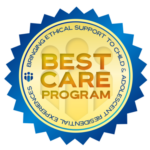Adolescence is a sensitive time characterized by rapid physical and mental changes. Many of these experiences can be confusing or distressing for teens who don’t entirely understand what their brains and bodies are going through. If your son seems unusually apathetic or unmotivated, you may wonder if it’s typical teen moodiness or something more severe.
1. Recognize Depression Symptoms
Depression can appear to be simple laziness, since depressed teens may be listless, struggle to complete chores and homework and spend a lot of time sleeping. If your son is irritable, you might assume he is being deliberately defiant or stubborn, but cycling through various mood swings is a hallmark of depression. It’s wise to take him to a doctor for a depression screening, especially if mental health problems run in your family or he has recently experienced a life upheaval such as starting at a new school.
2. Practice Compassion
Though teens want to succeed in school and be well-liked among their peers, depression can be debilitating. Additionally, teenagers today grow up having to navigate additional pressures that were not part of their parents’ adolescent experiences. Navigating social media circles, cyberbullying and increasingly unrealistic expectations from the media to look and act a specific way all play a role in a teen’s self-image, and can often lead to profound sadness.
Instead of lecturing or telling your son to “get over it” or “tough it out,” let him know you are always available to talk if he needs anything. Ask open-ended questions to create opportunities for dialogue.
3. Be Patient
Encouraging your teen to stay active and involved in household responsibilities can help him continue to feel supported. Still, there may be times when he can’t muster up the energy to do much because depression is so draining. Remember, depression is an illness with ups and downs like any other. If he’s feeling down, give him a break from household chores and schoolwork.
4. Get Him Support
While your understanding and good parenting skills can make a significant difference for your child, professional therapy is typically the best way to treat depression. A therapist will listen to his thoughts, offer non-judgmental support and help them explore ways to start feeling better.
Help for Teens With Co-Occurring Disorders
ARCH Academy offers treatment for young men ages 14 to 17 who are struggling with substance use disorders and co-occurring mental health issues like depression. A combination of individualized therapy, process groups, medication management and experiential programming allows our residents to address any mental illnesses that may contribute to a pattern of substance abuse.
Though teen boys can be reluctant to open up about the difficult emotions they experience, our experienced clinicians have created an environment where our clients feel safe discussing these issues. Our 177-acre campus provides the ideal setting for recovery, while our commitment to academic growth ensures each teen who enrolls in our program receives essential educational support. Contact us today to learn more about our alternative school and treatment programming for teen boys.




